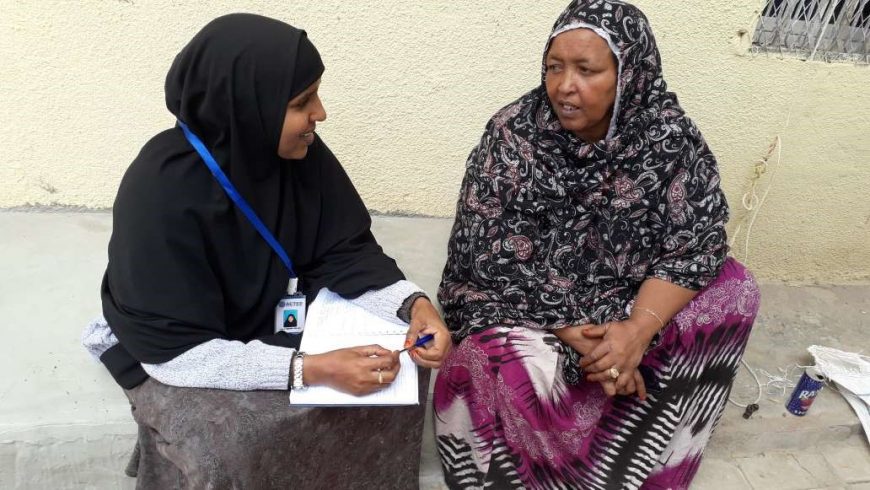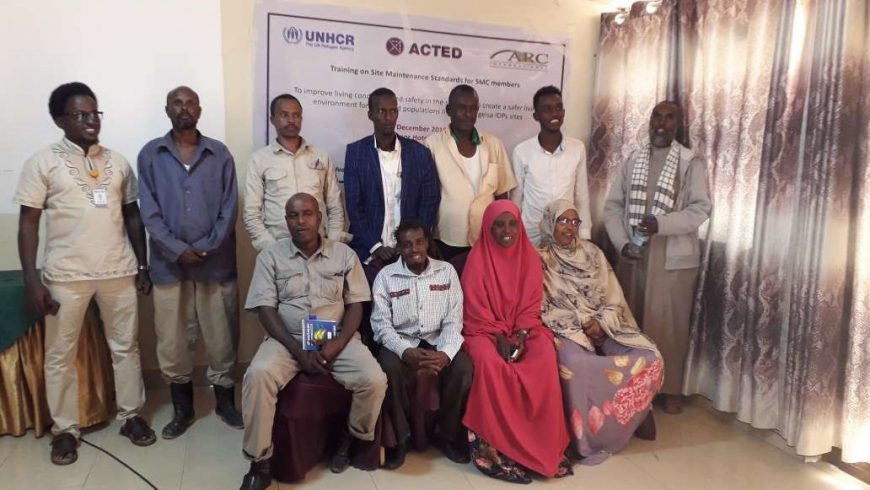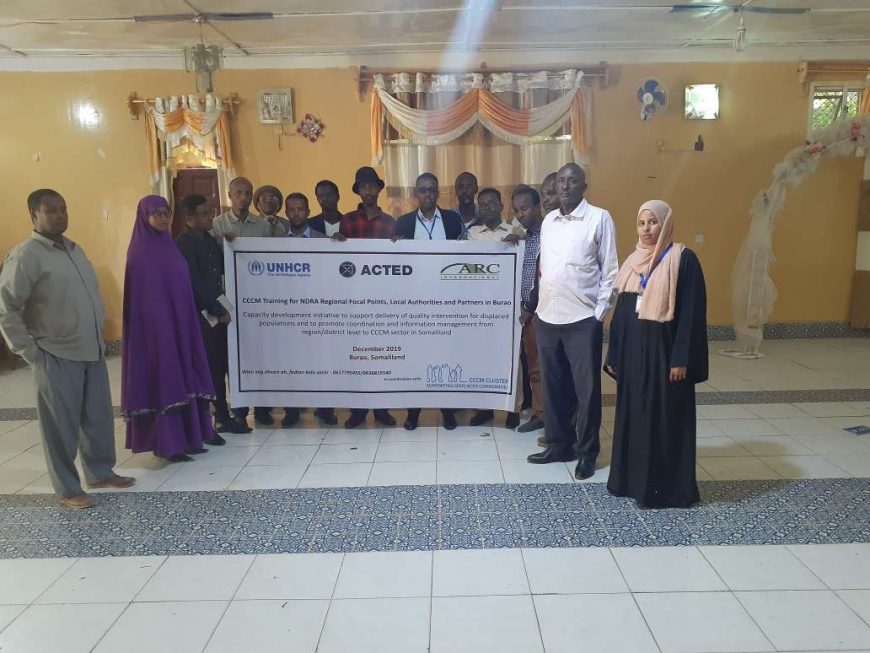Following the heavy rains in October and November, Somalia currently counts 2.6 million people forced into displacement, adding to the ongoing humanitarian crisis faced in Somaliland. Hundreds of families had to abandon their homes, enduring difficulties to address basic needs. Thus, ACTED and UNHCR partnered to answer the crisis by helping camp residents with management and coordination, in order to help those displaced population in their daily life.
Working with the communities, the two organisations strive to improve the resident’s livelihood in camp, providing them with solar lamps to enlighten the alleys and organized camp maintenance trainings for the communities. These activities brought more security and create strong leadership among communities living in camps.

ACTED supported us with donation of site maintenance tools such as fire extinguishers and information sharing, by installing information boards to improve access to information. (…) ACTED truly touched the lives of the internally displaced people through its Camp Coordination and Camp Management interventions
Enduring multifaceted crisis
Over recent years, Somaliland suffered ecological and humanitarian challenges. The country regularly supports heavy rains and flooding, coming from the Ethiopian highland. In addition, tensions still take place between Somaliland and Puntland over the contested Sool and Sanaag regions. These led to the displacement of more than 1 000 households in camps hosting internal displaced people. With the assistance of UNCHR funded activity, ACTED created a thought process of camp management to ensure maximised safety and organisation for them within the camp.
Supporting site improvements through capacity building
At night, alleys and streets of the camp are not a secure place, especially with no street lights. Among all the residents, women are the most vulnerable and deserve special attention to the hardships they often face. Fighting that insecurity, ACTED erected solar powered lighting in strategic places all through the camp.
Try to let alone someone managing a site with such a huge population of diverse background. We faced numerous challenges relating to site management and therefore needed capacity building to help us overcome these challenges that made us initially feel helpless

To help the residents, the organisation also trained individuals to become camp leadership for the communities. They followed information session to understand camp management concepts and be able to maintain safety on the IDP site – with special attention to women and children. This system creates a cohesive response to help supporting the displaced communities.

The training has equipped us with valuable knowledge that will make us serve the community better. Before the training, we did not even understand our roles and responsibilities but now we feel empowered, educated and valuable members of our community. The knowledge gained will be cascaded down to household level so that the entire community can benefit from the knowledge we received (…).